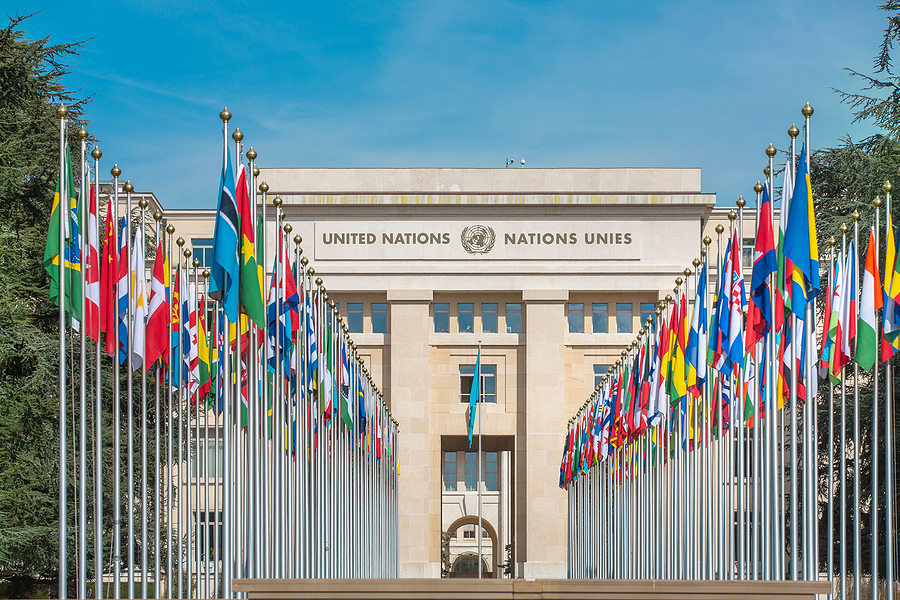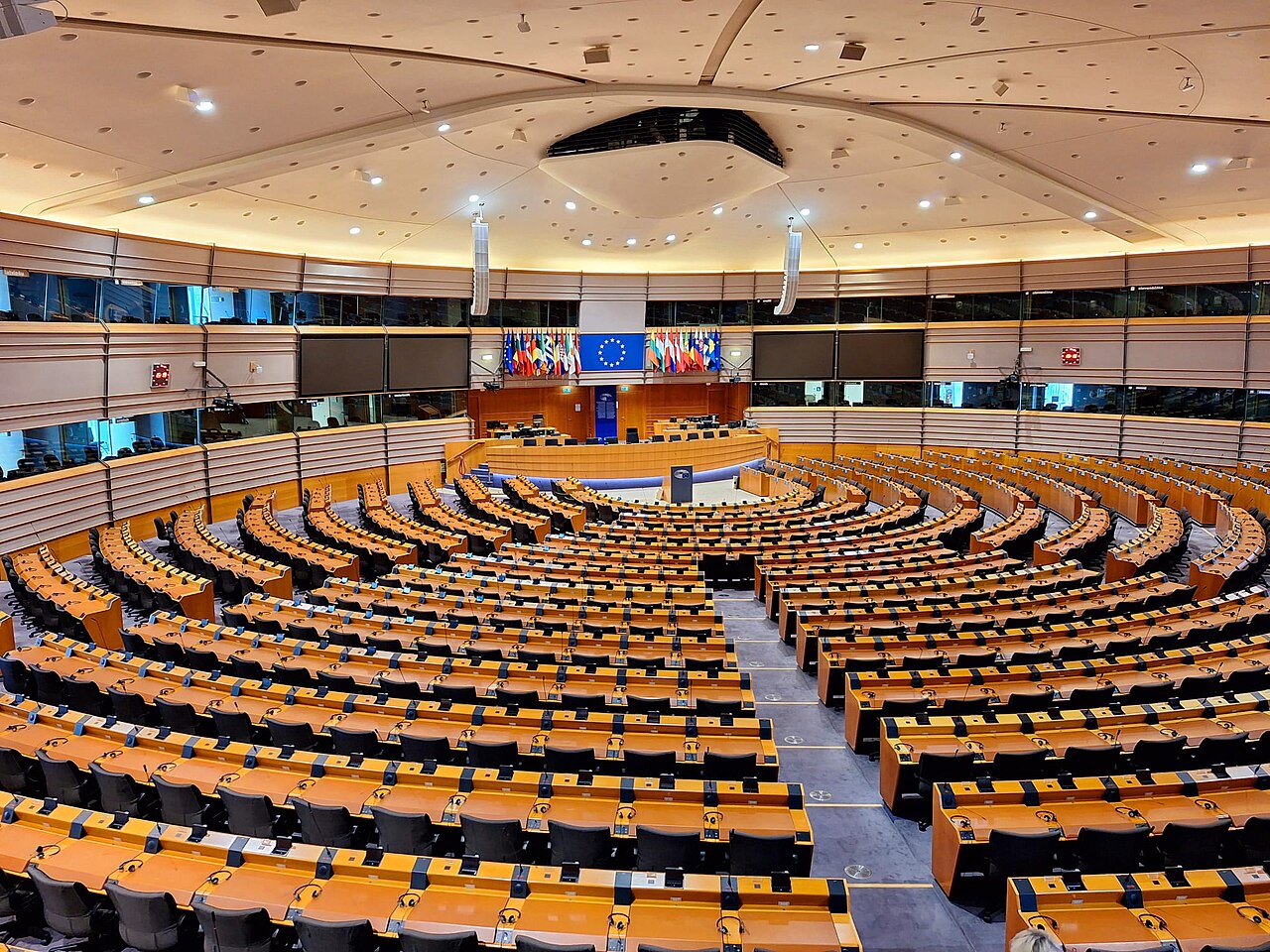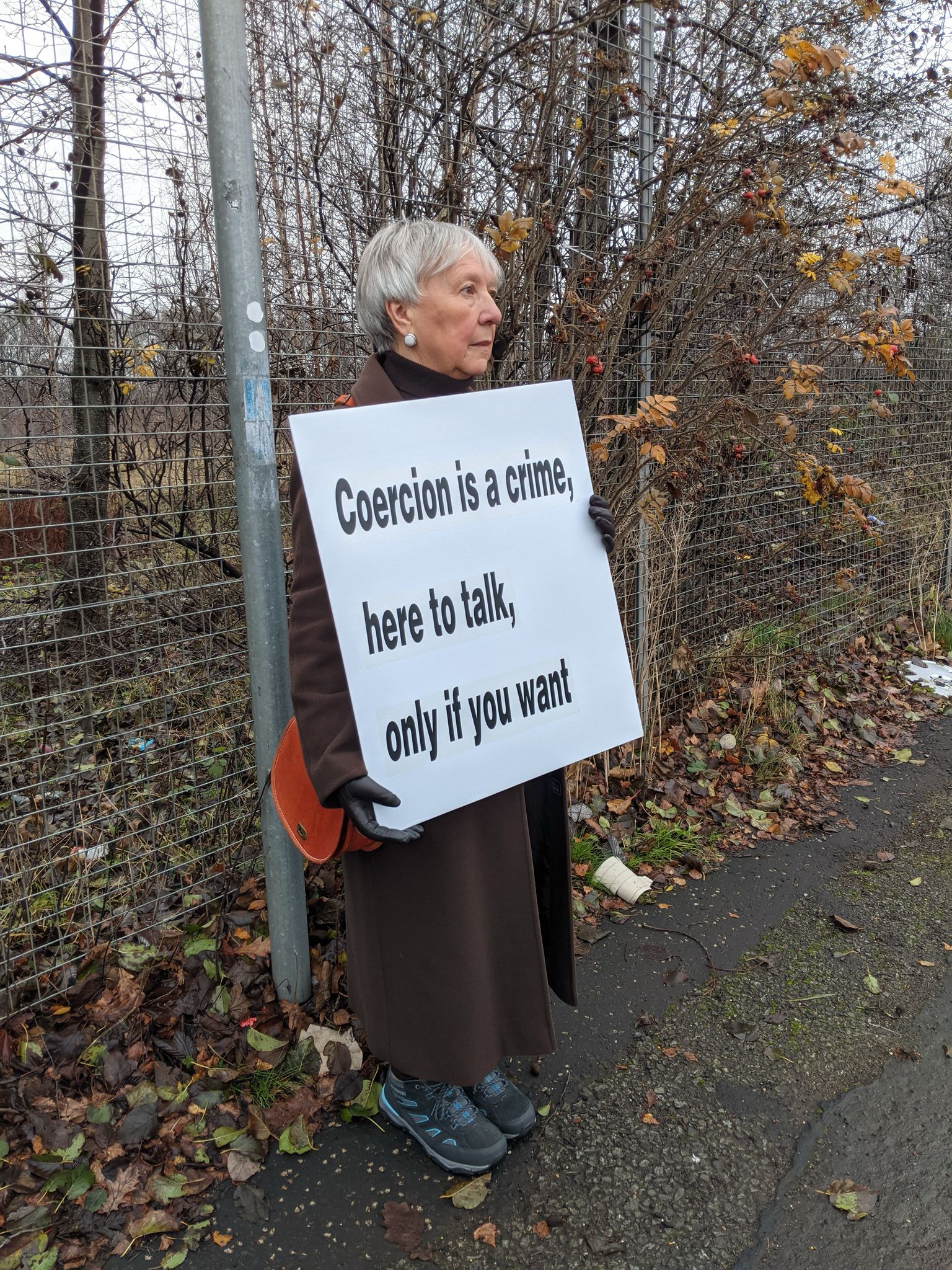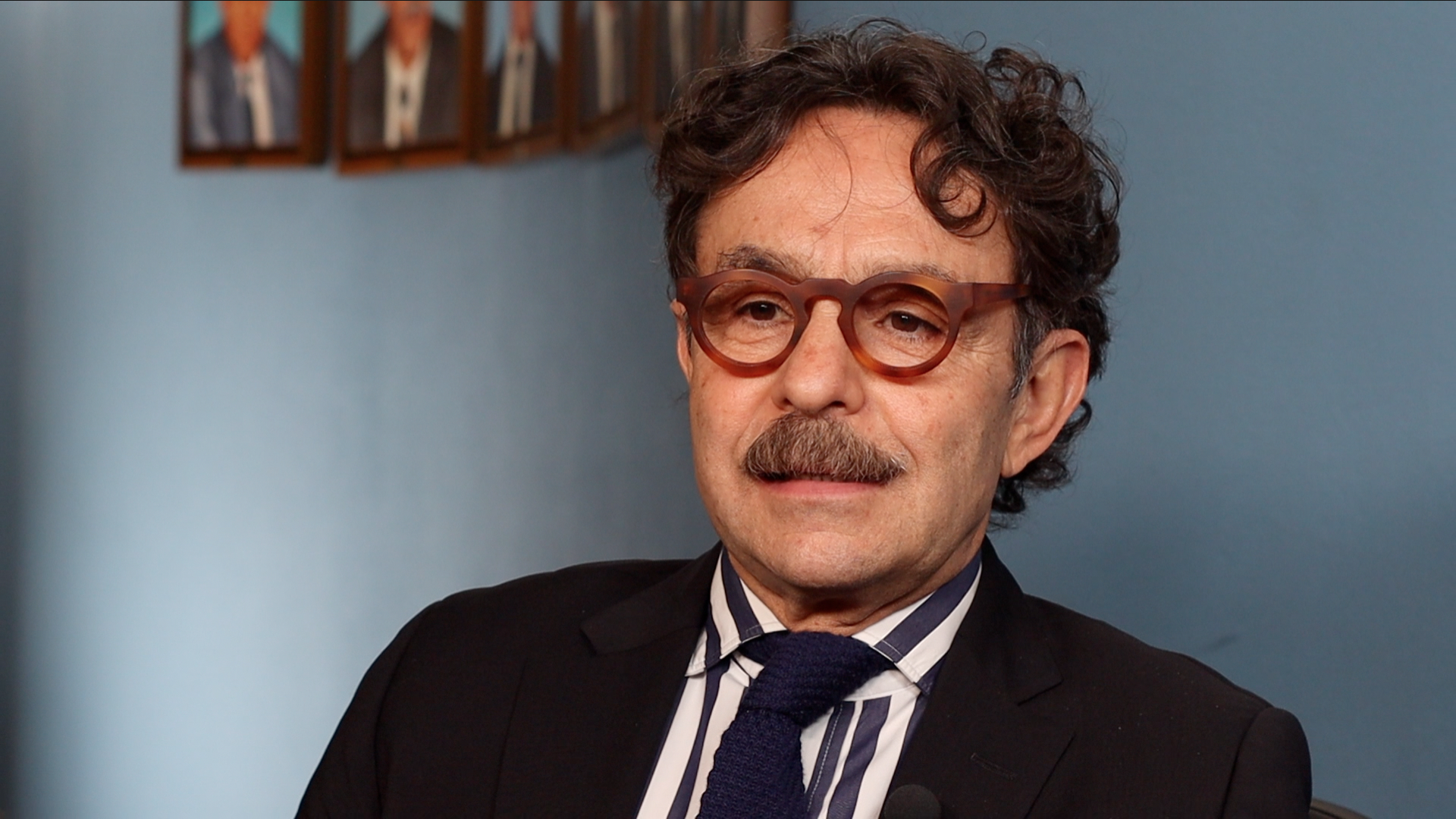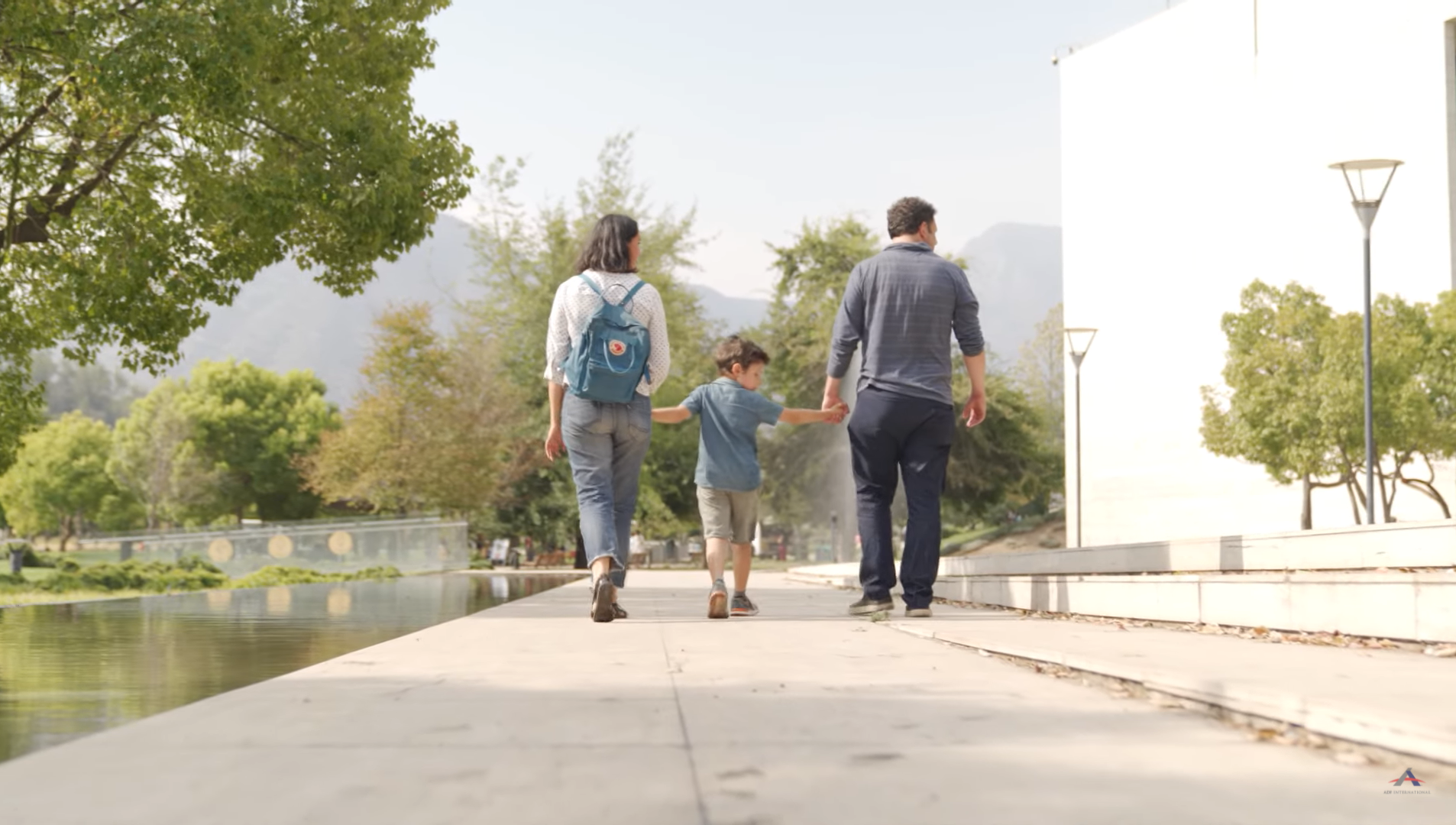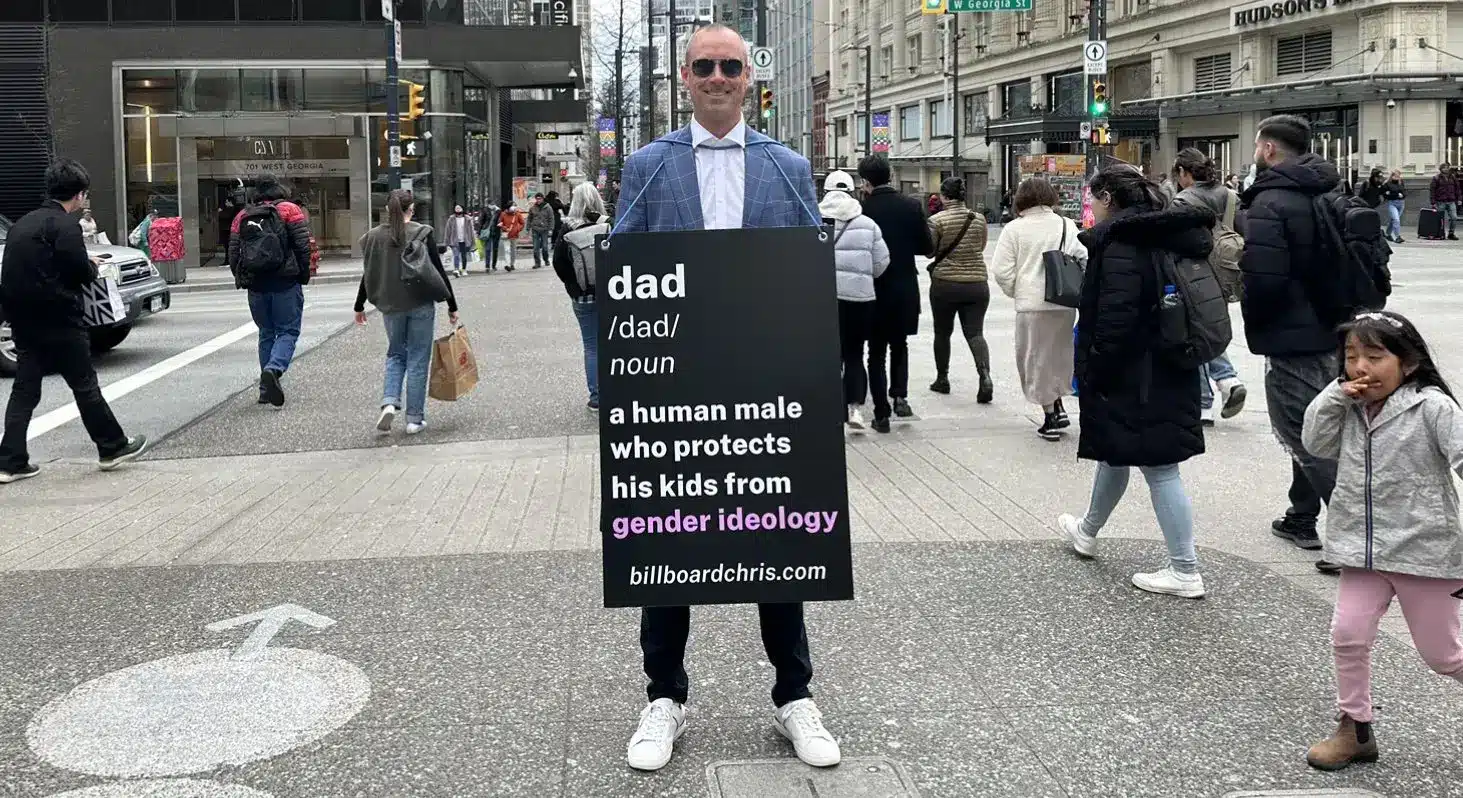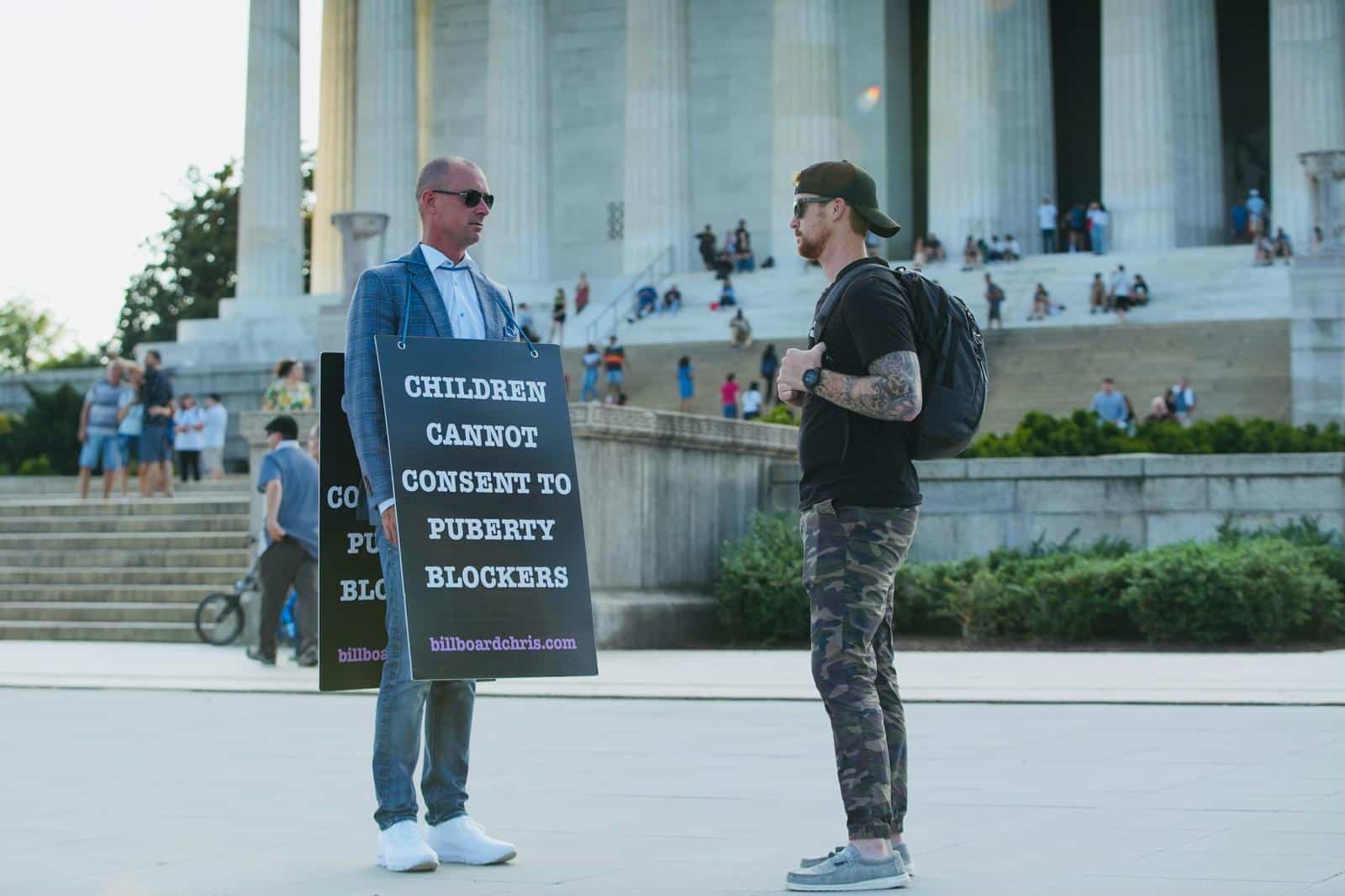Today, the World Health Assembly adopted the WHO Pandemic Agreement. The final treaty text drops earlier references to “misinformation” and “infodemic management,” safeguarding free expression.
Continue readingExperts to convene at European Parliament to warn about EU online censorship law, following US State Department expressing concern
- First-of-its-kind, cross-party event, co-hosted by politicians and ADF International, to examine threats to free speech posed by Digital Services Act (DSA)
- Event, also featuring journalist and best-selling author Rod Dreher, to take place on morning of Wednesday, May 21
- Pressure on DSA builds, following US State Department expressing concern over censorial impact of the law
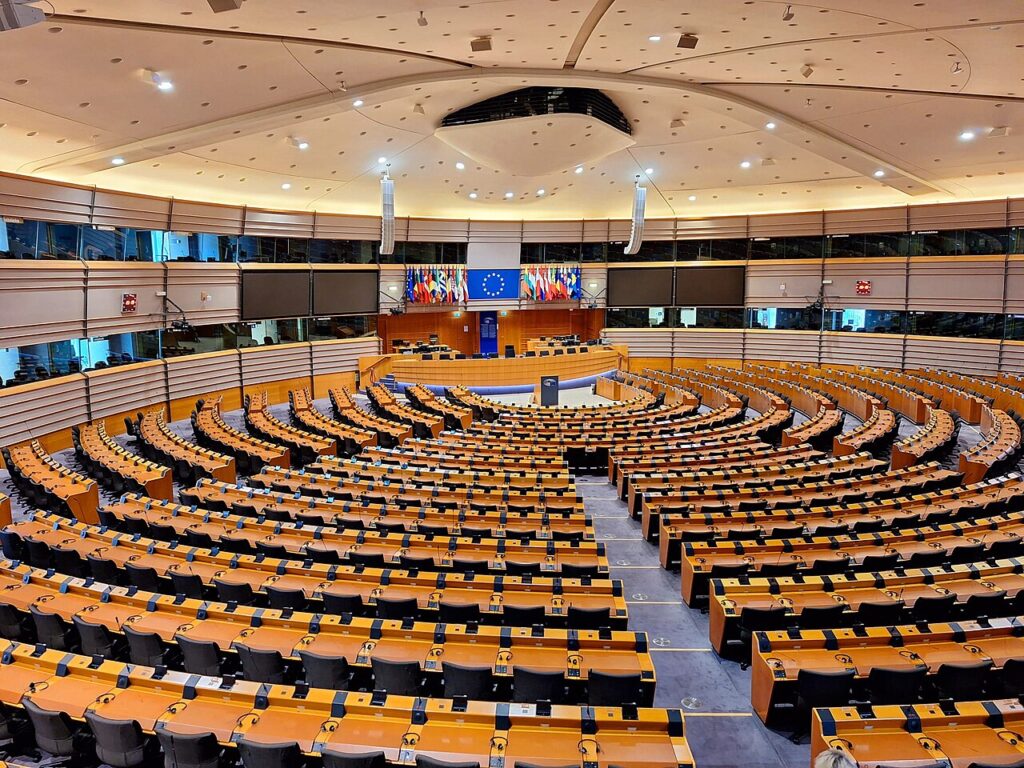
BRUSSELS (19 May 2025) – Experts will convene at the European Parliament this Wednesday morning to warn about the threats of an EU online censorship law, in a first-of-its-kind, cross-party event.
The event, which is co-hosted by ADF International, is entitled “The Digital Services Act and Threats to Freedom of Expression”.
It follows the Bureau of Democracy, Human Rights, & Labour, a bureau within the US State Department, expressing concern about the censorial impact of the Digital Services Act (DSA).
The DSA is an EU regulation that requires online platforms, including US tech companies such as X and Meta, to remove “illegal content”, or risk facing massive financial penalties.
There are concerns it could introduce a “lowest common denominator” of censorship, as the most egregious anti-speech laws in any individual EU country could be applied across the region under the act.
Croatian Member of the European Parliament (MEP) Stephen Bartulica, who will speak at the event, said: “Pressure against the Digital Services Act is quickly building both inside and outside the European Parliament.
“Concern from the United States, including from their State Department and Congress, over the censorial impact of the DSA should not be ignored by the Commission—the US is a vital ally of Europe.
“This event will be a crucial part of continuing to build pressure on the DSA. Online censorship in Europe must be rejected. I believe in free speech, not regulated speech.”
Paul Coleman, Executive Director of ADF International, and an international human rights lawyer specialising in free speech, who will also speak at the event, said: “The DSA is one of the most serious threats to online free speech in the digital age.
“The move towards censorship in Europe through this framework is deeply concerning and must be challenged.
“We cannot accept a transatlantic divide on free speech, where the US recommits to the protection of this fundamental freedom, while Europe tramples on it. Freedom of expression must be protected and upheld across the globe.”
Another speaker at the event, French MEP Virginie Joron, said: “The DSA has become a tool that elites want to use to control the internet, in a desperate attempt to censor narratives that go against their narrative.
“This truth is becoming increasingly clear to the world. The new DSA regulation must not become a political tool.
“This event comes at an important moment and is a crucial step in the fight against the misapplication of this regulation.”
This week’s conference is being hosted by European Conservatives and Reformists (ECR) MEP Mr Bartulica, PfE MEP Ms Joron and ADF International, a Christian legal organisation, with expertise in international law, that defends free speech.
Pressure builds against Digital Services Act
The gathering of free speech experts will add to steadily building pressure on the DSA, following a letter reportedly sent to the European Commission last week by the US House Judiciary Committee, expressing concern over the legislation.
Henna Virkkunen, the Commission’s Executive Vice-President for Tech Sovereignty, Security and Democracy, also met with Congressman Jim Jordan, Chair of the House Judiciary Committee, in Washington DC last week.
In a post on X, she said: “Candid exchange with @Jim_Jordan [Chairman Jordan].”
She went on to claim in the post: “Freedom of speech is a fundamental right in the EU and is strongly protected by our digital rules. Happy to continue our good discussion.”
Earlier this month, the US Department of State Bureau of Democracy, Human Rights, and Labor expressed concern over the censorial impact of the DSA.
The State Department bureau posted on X: “The Department of State is deeply concerned about efforts by governments to coerce American tech companies into targeting individuals for censorship. Freedom of expression must be protected – online and offline.
“Examples of this conduct are troublingly numerous. EU Commissioner Thierry Breton threatened X for hosting political speech.”
The post continued: “Türkiye fined Meta for refusing to restrict content about protests; and Australia required X to remove a post criticizing an individual for promoting gender ideology.
“Even when content may be objectionable, censorship undermines democracy, suppresses political opponents, and degrades public safety. The United States opposes efforts to undermine freedom of expression. As @SecRubio [Marco Rubio] said, our diplomacy will continue to place an emphasis on promoting fundamental freedoms.”
This Wednesday’s conference is the first of its kind in the European Parliament to focus on the threats to free speech posed by the DSA, offer concrete answers on how to oppose them, and discuss the fundamental importance of freedom of expression for societal flourishing, in that context.
Rod Dreher, an American journalist and bestselling author, will also speak at the event. His books include ‘The Benedict Option’, ‘Live Not By Lies’ and, most recently, ‘Living in Wonder’. He is also a Visiting Fellow at the Danube Institute think tank.
Email [email protected] to secure your place at this groundbreaking event.
The Digital Services Act
EU politicians have stated their desire for the DSA to “address’ so-called “mis” and “disinformation” online—vague and subjective terms, which experts have warned can be used to justify censorship.
The regulation would provide an incentive to and put pressure on tech companies, including American ones, to censor speech, rather than risk massive financial penalties for non-compliance.
There are additional concerns in the US about the DSA potentially having an extraterritorial impact and being used to censor speech inside America.
An attempt at using the regulation to censor speech in the US was seen last summer, when former Commissioner Thierry Breton warned Elon Musk to not breach the DSA ahead of his X interview with then-Presidential candidate Donald Trump.
Find more information on the DSA here.
STATEMENT: The Leadbeater Bill will harm far more than it helps
- UK Parliament debates amendments on the Terminally Ill Adults (End of Life) Bill , including on conscientious objection
- Bill faces serious backlash, including from Royal College of Psychiatrists, who announced this week it “cannot support” the Bill, citing “many, many factors” that need addressing

The following statement may be attributed to Robert Clarke, Director of Advocacy for ADF International:
“A truly compassionate society protects the vulnerable to live – it doesn’t steer them to death. The assisted suicide bill now advancing through Westminster is a dangerous proposal that threatens to devalue, endanger, and ultimately extinguish the lives of those who deserve better.
Today’s debate in parliament exposed just how unworkable this Bill is. There was lengthy discussion on a new clause to ensure a right as basic as conscientious objection.
Among those speaking, Anneliese Dodds MP and Tim Farron MP pointed to the official data from Oregon: over half of those who took state-prescribed lethal drugs did so because they saw themselves as a “burden”. No safeguards are strong enough to prevent implicit – or even explicit – pressure leading to the same result here.
Rebecca Paul MP, a supporter ‘in principle’ of assisted suicide warned that this bill will ‘harm far more people than it will help’ and that ‘those people who will be harmed will be the most vulnerable in our communities’. The Commons should listen. If even one person is killed on the NHS because they feel pressured to do so, this law will mark one of the gravest human rights failures of our time.”
Images for free use in print or online in relation to this story only
Pictured: Robert Clarke
Grandmother arrested in Scottish abortion “buffer zone” reacts as parliamentarians push for extension of censored public space
- Parliamentarian Gillian Mackay tells BBC she wants the government to consider extending Scottish “buffer zones”, despite already being the largest in the world
- Glasgow grandmother became first to be arrested under the new laws after holding a sign reading “coercion is a crime, here to talk, only if you want” – says she is “prepared to go to prison”
- U.S. Vice President J.D. Vance criticised Scottish law, raising concerns that residents in “buffer zone” areas could be punished for even praying within their homes
GLASGOW (16 May 2025) – The grandmother arrested for holding a sign reading “coercion is a crime, here to talk, only if you want” nearby a Glasgow hospital in March has spoken out following political manoeuvers to expand Scotland’s censored “buffer zones” – despite the zones already being the largest of their kind in the world.
Rose Docherty, 74, was handcuffed, arrested, and driven away in a police car for standing peacefully with a sign inviting conversation with anyone who wanted to approach her in February 2024. A video of her arrest went viral internationally.
“Of course, there should be laws against harassment, and we all condemn such behaviour. But merely offering conversations near a hospital is not a crime."
- Rose Docherty, arrested for offering consensual conversation in a "buffer zone"
Docherty was standing within 200m of the Queen Elizabeth University Hospital in Glasgow, where a censorial “buffer zone” is enforced. The buffer zone prevents harassment, intimidation, and “influence” of a person’s decision to access abortion services. Docherty denies engaging in any of the prohibited activities.
Speaking to BBC Scotland’s “Scotcast” this week, Rose Docherty said that the experience had been “alarming”.
In an exclusive broadcast with the BBC, Docherty explained that she had studied the Scottish “buffer zones” law, which came into force in 2024, and had carefully chosen a sign that did not break any prohibitions. On the day in question, she stood quietly and peacefully near the hospital, not approaching anyone, in order to ensure that any conversations that took place were consensual.
“I gave consideration to what I was doing…I looked at the law and saw what it said I couldn’t do, and thought, ok, well this is what I can do…I can offer to listen, and if anyone wants to come and speak to me, they can do so, only if they want to come and speak with me ,” she told the podcast.
Speaking later to ADF International, she reflected: “there was nothing in my conduct or sign that could reasonably be considered harassing, alarming and distressing”.
The offence of engaging in “influence” within the buffer zone (section 4 Abortion Services (Safe Access Zones) (Scotland) Act 2024) carries a maximum sentence of an unlimited fine. Docherty also told the BBC that she would even be “willing to go to prison” over what had happened.
Commenting later on her words, Docherty added:
“I informed BBC that I would be willing to go to prison on the issue because I am unshakeably convinced that nobody should be criminalised for a peaceful offer to speak on any public land in Britain.
“This is a free and democratic society, and no threat of imprisonment will change my mind that what I did was right, completely harmless and in accordance with the purpose and intention of international human rights laws.”
Parliamentarians begin efforts to expand censorial zone
Video: Rose Docherty was arrested in February 2025
Gillian Mackay MSP, the parliamentarian responsible for introducing “buffer zones” legislation in 2024, has now suggested that the Scottish government consider expanding the area of prohibition on “influence” outside hospitals.
Claiming that members of the public have said they still feel intimidated by the presence of pro-life individuals 200m from a hospital, the Green Party parliamentarian said: “I think it’s appropriate that we take those concerns seriously and the government take a look at whether an extension is appropriate or not.“
Responding to recent efforts to expand the buffer zone, Docherty said “I believe it wouldn’t matter where we stood…it wouldn’t matter how far they pushed the ‘buffer zone.’”
Speaking to ADF International, she added, “It wouldn’t matter where we stood –201 meters, or 500 meters away – it seems the authorities would still try to crack down harshly and unfairly on individuals because the government simply disagree with their point of view. This is unjust – of course, there should be laws against harassment, and we all condemn such behaviour. But merely offering conversations near a hospital is not a crime.”
A Scottish government spokeswoman told the BBC the act allows ministers to extend the size of a buffer zone if it is decided that the existing zone is not adequate.
She added: “However, before taking such a step, it is essential that ministers are satisfied such an extension is appropriate.
“We have engaged with the relevant health board to understand any impacts the anti-abortion activity outside of the safe access zone may be having on patients and staff.”
Buffer zone law could ban prayer within homes – “depending on who’s passing by the window”
In February, Gillian Mackay MSP admitted that prayer by a window in one’s own home could be an offence within a buffer zone – depending on who is passing by.
Again speaking to BBC’s “Scotcast” Podcast, the Green Party Politician repeatedly denied that prayer was being criminalised under the law. But when asked if “performative prayer” with “clasped hands”, visible from a window, could be prosecuted, she responded: “well, that depends on who’s passing by the window…”
The admission came despite previously accusing US President JD Vance of spreading “shameless misinformation” when he highlighted concerns that “even private prayer within [people’s] own homes may amount to breaking the law” in his Munich Security Conference Speech earlier this year.
Lois McLatchie Miller, Scottish spokesperson for ADF International, said:
“The ‘buffer zones’ law is fundamentally flawed when it comes to undermining basic freedoms of speech, thought, and religion. We all stand firmly against harassment, which is already illegal – but the law goes far beyond that in preventing people from praying or holding consensual conversations in large public areas of Scotland.
“We were concerned when such legislation was proposed that we’d witness a slippery slope of censorship. Less than a year after the bill passing, already, politicians are considering expanding the ‘buffer zone’ area, which would restrict free speech in an even larger public area. Who are the authorities to determine which conversations members of the public do or don’t want to have?”
Images for free use in print or online in relation to this story only
PICTURED: Rose Docherty; Lois McLatchie Miller, ADF International
Criminality of prayer within a home “depends on who’s passing the window” claims author of the Scottish “buffer zones” law called out by JD Vance
- Gillian Mackay MSP claims visible prayer by a window at home could be a crime if within 200m from an abortion facility, depending on who is “passing the window”
- Comments come weeks after Vance called out Scotland’s censored “buffer zones” – Mackay previously described his concerns about prayer at home as “misinformation”
Gillian Mackay, interviewed on BBC “Scotcast” podcast this week. Full episode available on BBC iPlayer, clip begins 24.07
EDINBURGH (26th February 2025) – Gillian Mackay MSP, the politician who authored the Scottish “buffer zones” law which forbids “influence” within 200m of an abortion facility, has admitted that prayer by a window in one’s own home could be an offence – depending on who is passing by.
Speaking to BBC’s “Scotcast” podcast this week, the Green Party Politician repeatedly denied that prayer was being criminalised under the law. But when asked if “performative prayer” with “clasped hands”, visible from a window, could be prosecuted, she responded: “well, that depends on who’s passing by the window…”
“Clearly, the “buffer zones” law is fundamentally flawed when it comes to undermining basic freedoms of speech, thought, and religion.”
- Lois McLatchie Miller, Scottish Spokesperson for ADF International
US Vice President JD Vance recently highlighted the censorial nature of the law, referring to letters that had been sent to people’s homes warning them of the laws being put in place:
“…this last October, just a few months ago, the Scottish government began distributing letters to citizens whose houses lay within so-called “safe access zones,” warning them that even private prayer within their own homes may amount to breaking the law.
Naturally, the government urged readers to report any fellow citizens suspected guilty of thoughtcrime.
In Britain, and across Europe, free speech, I fear, is in retreat.”
Was J.D. Vance correct?
Mackay claimed that the Vice President was spreading “shameless misinformation”, and in the same Scotcast interview, pointed out that “nowhere in that letter does it say private prayer.”
The letter refers to a prohibition on activities that would “intentionally or recklessly…influence somebody’s decision to access” an abortion facility.
When pressed as to whether visibly praying from a window could meet the threshold of “influence”, Mackay admitted that it would depend on who was passing by the window at the point of prayer.
Commenting on the interview, Lois McLatchie Miller, Scottish spokesperson for ADF International, said:

“Clearly, the “buffer zones” law is fundamentally flawed when it comes to undermining basic freedoms of speech, thought, and religion. We all stand firmly against harassment, which has been illegal for many years – but the law goes much too far in preventing people from praying, or holding consensual conversations, in large public areas of Scotland.
“Gillian Mackay confirmed that “performative” prayer could be a crime, “depending on who is passing by the window”. The accusation of prayer being “performative” rather than genuine lies in the eye of the beholder. Who are the police to doubt the genuineness of somebody’s faith, based on where they are located, and the position of their hands?
“ J.D. Vance was right to raise concerns – this law is an illiberal travesty.”
74-year-old grandmother arrested in Glasgow "buffer zone"
On 19th February, a 74-year-old woman was arrested for holding a sign in a Glasgow “buffer zone” reading: “coercion is a crime, here to talk, if you want.”
The Domestic Abuse (Scotland) Act 2018 made “coercive control” illegal, recognising the profoundly harmful effects it can have on individuals and society. Over 6,640 charges related to this behaviour have been reported to the Crown Office between April 2019 and 2023. 14% of women have undergone coercion when it comes to making a decision about abortion – that’s about 1 in 7.
Commenting on her arrest, Rose Docherty said:
“I held a sign that read “Coercion is a crime, here to talk, if you want”. Everyone has the right to a consensual conversation. I simply made myself available for a chat, should anybody like to approach me and speak about any matter on their mind. I didn’t breach the buffer zone – I didn’t harass, intimidate, or even seek to influence anyone. I simply stood there, available to speak with love and compassion.
“It isn’t right to deprive anyone of the right to take up my offer to talk. And it isn’t right to censor zones within our country from thoughts, beliefs and conversations that authorities may simply disapprove of. Buffer zones aren’t “pro-choice” – they deprive women of the choice to have a chat outside the clinic. That isn’t right.”
Images for free use in print or online in relation to this story only
PICTURED: Rose Docherty; Lois McLatchie Miller, ADF International
International Body to Decide Case of Mexican Politician Censored for Gender Comments on “X”
Former Mexican congressman and presidential candidate Gabriel Quadri’s fight for free speech continues before the Inter-American Commission on Human Rights as ADF International submits a brief on the merits of his case.
Continue readingChile’s Congress Calls for Immediate Suspension of “Gender Transition” Programs for Children
- Chamber of Deputies adopts groundbreaking report calling for the immediate suspension of “gender transition” programs for minors and a full legislative overhaul in Chile
- Investigatory commission found off-label use of puberty blockers, lack of parental consent, and public funding for unapproved medical interventions in children
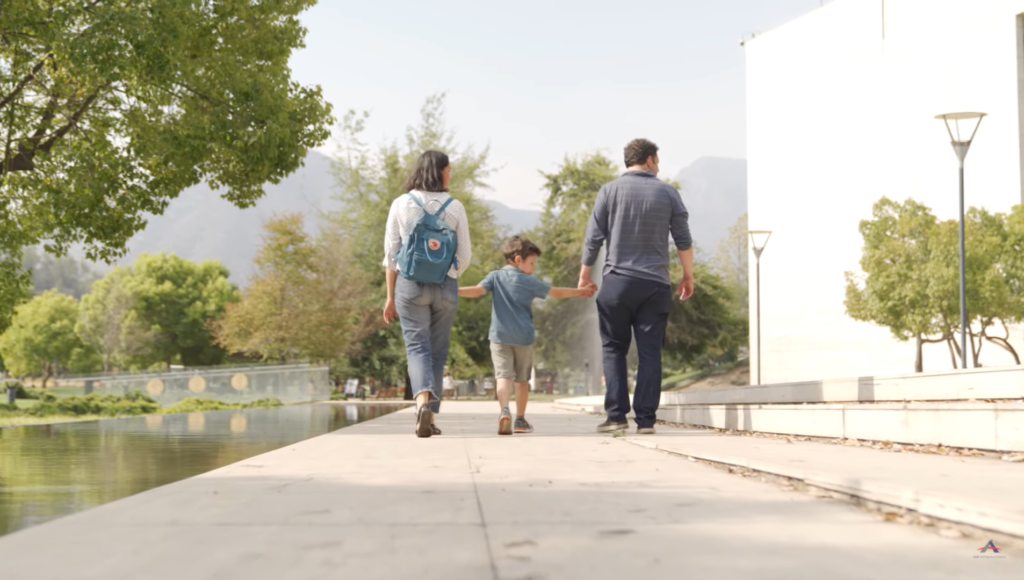
SANTIAGO (16 May 2025) – In a landmark move, Chile’s Chamber of Deputies has adopted the findings of a Special Investigatory Commission calling for the immediate suspension of government programs that promote the medicalized transition of minors.
The Commission’s report was adopted on Thursday by the majority of the deputies present in the Chamber. It details systemic medical, legal, and ethical failings in the state’s handling of children and adolescents who experience gender-related distress.
““Chile has become the first country in Latin America to confront the harms of the gender-affirming model through a democratic process."
- Tomas Henriquez, ADF International Director of Advocacy for Latin America
“Chile has become the first country in Latin America to confront the harms of the gender-affirming model through a democratic process. Congress has taken a courageous step in protecting children from the irreversible dangers of so-called ‘gender transition’,” said Tomás Henríquez, Director of Latin America Advocacy for ADF International.
“The Commission found that programs like PAIG – Crece con Orgullo and the Trans Health Program (PST) have operated as a pipeline to irreversible medical interventions, including puberty blockers and cross-sex hormones for children as young as ten, without scientific basis, regulatory oversight, or parental consent.”
The report highlights the following major findings:
- Children as young as three years old were referred for gender identity programs.
- 1,716 minors were identified as recipients or in line for hormone therapies in 2023 alone.
- None of the drugs used—including GnRH analogues—have been approved by Chile’s public health regulator for gender dysphoria in children.
- Parental consent procedures were absent or inconsistent, and some interventions proceeded without it.
The report states:
“It is clear that the current programs, under the guise of accompaniment, have operated as a gateway to irreversible medical and hormonal transition for children, without the necessary scientific, ethical, or legal safeguards.”
It further states:
“The therapeutic indication of these treatments in minors lacks adequate evidence and carries high risks. The principles of medicine—primum non nocere (first, do no harm)—have been disregarded.”
The report calls for:
- Immediate suspension of the PAIG and PST programs
- A ban on hormonal and surgical interventions for all minors
- Legislative reform of Chile’s Gender Identity Law to restore parental rights and restrict access
- Referral to the Public Prosecutor’s Office for possible criminal violations
It is widely expected that the Congress will now move to legislatively bar the use of puberty blockers, cross sex hormones, and so-called surgical transitioning for minors.
The report follows last year’s vote introducing an amendment to ban the use of public funds for “gender transitioning” of children. That amendment was later struck down by the Constitutional Court over separation of powers grounds, but this vote reveals a consolidated majority of lawmakers in favor of restricting “gender transition” for minors.
Henríquez added:
“This is a turning point—not only for Chile, but for the entire region, in the disavowal of the lie of gender ideology. Lawmakers have listened to the evidence, the science, and the voices of parents. The so-called gender-affirming model is collapsing globally, and Chile is now leading Latin America toward a more responsible and ethical approach to gender dysphoria in youth.”
The report mirrors international developments such as the UK’s Cass Review, which concluded that the so-called “gender-affirming approach” lacks an evidence base and places children at risk. It also follows the release of the US Department of Health and Human Services Gender Dysphoria Report in April.
ADF International has urged Chilean authorities to implement the Commission’s recommendations without delay and to ensure that all children receive compassionate, evidence-based psychological support without being steered toward dangerous life-altering medical procedures.
Images for free use in print or online in relation to this story only
PICTURED: Tomas Henriquez
As Albanese claims electoral victory, U.S. State Dept warns Australia: Don’t censor free speech on 𝕏
- U.S. State Dept. “deeply concerned” about foreign censorship on U.S. social media platforms – including Australia’s censorship of Canadian campaigner “Billboard Chris” (Chris Elston)
- Elston legally challenged the Australian eSafety Commissioner for censoring his post on gender ideology last month. ADF International supported the case
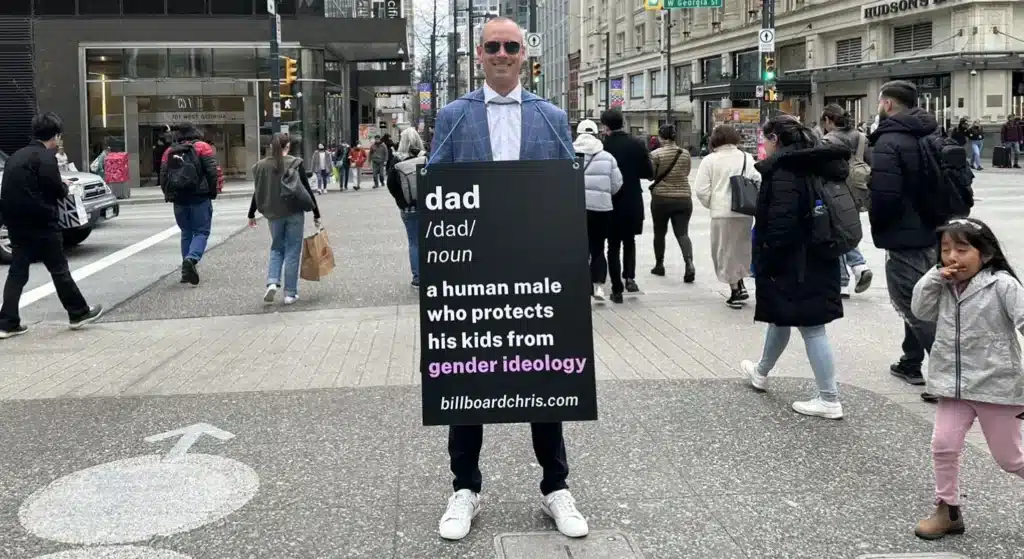
MELBOURNE (5 May 2025) – As the Labour Party claim victory in Australia’s election, the U.S. State Department’s Bureau of Democracy, Human Rights, & Labor has issued a warning to the government not to censor free speech on U.S. social media platforms.
Listed as an example of such “concerning” behaviour is the decision of the Australian eSafety Commissioner to require Musk’s 𝕏 to censor Canadian campaigner “Billboard Chris” (Chris Elston), who posted a criticism of gender ideology, and used biologically accurate pronouns to describe an Australian “transgender” activist, in a now “geo-blocked” post in 2024.
Elston is a public campaigner against puberty blockers being given to children.
“If our free speech can't be protected when we speak out against the greatest child abuse scandal in the world right now, when can it be?”
- Chris Elston ("Billboard Chris")
The State Department’s statement, released on social media, reads:
“The Department of State is deeply concerned about efforts by governments to coerce American tech companies into targeting individuals for censorship. Freedom of expression must be protected – online and offline.
“Examples of this conduct are troublingly numerous. EU Commissioner Thierry Breton threatened X for hosting political speech; Türkiye fined Meta for refusing to restrict content about protests; and Australia required X to remove a post criticizing an individual for promoting gender ideology.
“Even when content may be objectionable, censorship undermines democracy, suppresses political opponents, and degrades public safety. The United States opposes efforts to undermine freedom of expression. As @SecRubio said, our diplomacy will continue to place an emphasis on promoting fundamental freedoms.”
Reacting to the news of the State Department’s intervention, Chris Elston (“Billboard Chris”) said:
“It’s tremendous to have the State Department support what we all know is true: free speech is a fundamental right, critical to a democratic society.
If our free speech can’t be protected when we speak out against the greatest child abuse scandal in the world right now, when can it be?”
Both 𝕏 and Billboard Chris, who was supported by ADF International and the Australian Human Rights Law Alliance, legally challenged the decision in Melbourne last month. The result is expected in the second half of this year.
Australia censored post using biologically accurate pronouns to describe "transgender" activist
The Australian eSafety Commissioner defended the decision to censor Elston’s post before a Tribunal in Melbourne last month by arguing that a post using the biologically accurate pronouns of a transgender activist was “likely …intended to have an effect of causing serious harm” and should therefore be subject to state-enforced censorship, in accordance with Australia’s Online Safety Act.
The post in question, which was subject to a “removal notice” at the hands of the eSafety Commissioner in April 2024, shared a Daily Mail article headlined “Kinky secrets of UN trans expert REVEALED: Australian activist plugs bondage, bestiality, nudism, drugs, and tax-funded sex-change ops – so why is he writing health advice for the world body?” and which included pictures posted on social media by transgender activist, and WHO expert panel appointee, Teddy Cook.
In February 2024, Canadian internet sensation and children’s safety campaigner “Billboard Chris” (Chris Elston), took to U.S. social media platform “X” to share the article, adding the comment:
“This woman (yes, she’s female) is part of a panel of 20 ‘experts’ hired by the @WHO to draft their policy on caring for ‘trans people.”
“People who belong in psychiatric wards are writing the guidelines for people who belong in psychiatric wards.”
The takedown order was legally challenged by Elon Musk’s platform “X”, and by Elston. ADF International and the Human Rights Law Alliance are supporting Elston’s legal case.
In his evidence, Elston told the Tribunal that while the first sentence of the tweet was a specific comment to the Daily Mail’s story on Teddy Cook, his second sentence was intended more broadly, to make a political comment about the ideological bias present amongst those in positions of power and influence when it comes to writing gender policy around the world.
Speaking on the witness stand, Elston added:
“It’s damaging to teach children they are born in the wrong body…children are beautiful just as they are. No drugs or scalpels needed.”
Asked further about why he chose to post on this matter, Elston explained: “Because the World Health Organisation has global influence. We should have evidence-based care.”
Freedom of political communication is protected as an implied right under the Australian Constitution.
Robert Clarke, Director of Advocacy for ADF International, which is backing Elston’s legal defence, said:
“The decision of Australian authorities to prevent Australian citizens from hearing and evaluating information about gender ideology is a patronizing affront to the principles of democracy.
“The confidence of the Australian eSafety commissioner to censor citizens of Canada on an American platform, shows the truly global nature of the free speech crisis.
“Speaking up for free speech is critical at this juncture, and we’re proud to be backing Billboard Chris as he does just that.”
Members of the public are invited to support Chris’s legal case here: https://adfinternational.org/campaign/support-billboard-chris
Images for free use in print or online in relation to this story only
Pictured: (1,2) “Billboard Chris” (Chris Elston)engaging in street activism; (3) Chris Elston with the ADF International team supporting his case; (4) Chris Elston with Lois McLatchie Miller (ADF International) in Sydney
U.S. State Department calls out Australian government for “coercing” Musk’s 𝕏 to censor truth on gender
- “Censorship undermines democracy, suppresses political opponents, and degrades public safety”, reads U.S. State Dept. statement calling out Australia’s censorship of Canadian campaigner “Billboard Chris” (Chris Elston)
- Elston legally challenged the Australian eSafety Commissioner for censoring his post on gender ideology last month. ADF International supported the case
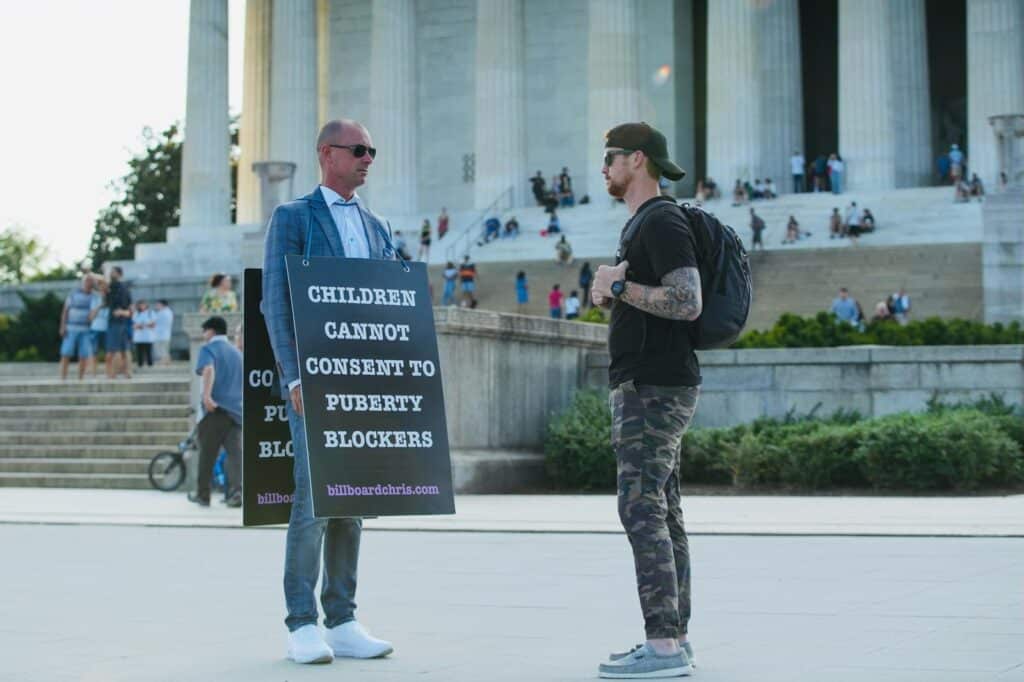
Washington, D.C. (3 May 2025) – The U.S. State Department’s Bureau of Democracy, Human Rights, & Labor has called out foreign governments who “coerce” U.S. social media platforms to censor users for speaking the truth.
Listed as an example of such “concerning” behaviour is the decision of the Australian eSafety Commissioner to require Musk’s 𝕏 to censor Canadian campaigner “Billboard Chris” (Chris Elston), who posted a criticism of gender ideology, and used biologically accurate pronouns to describe an Australian “transgender” activist, in a now “geo-blocked” post in 2024.
Elston is a public campaigner against puberty blockers being given to children.
“If our free speech can't be protected when we speak out against the greatest child abuse scandal in the world right now, when can it be?”
- Chris Elston ("Billboard Chris")
Reacting to the news of the State Department’s intervention, Chris Elston (“Billboard Chris”) said:
“It’s tremendous to have the State Department support what we all know is true: free speech is a fundamental right, critical to a democratic society.
If our free speech can’t be protected when we speak out against the greatest child abuse scandal in the world right now, when can it be?”
Both 𝕏 and Billboard Chris, who was supported by ADF International and the Australian Human Rights Law Alliance, legally challenged the decision in Melbourne last month. The result is expected in the second half of this year.
The State Department’s statement, released on social media, reads:
“The Department of State is deeply concerned about efforts by governments to coerce American tech companies into targeting individuals for censorship. Freedom of expression must be protected – online and offline.
“Examples of this conduct are troublingly numerous. EU Commissioner Thierry Breton threatened X for hosting political speech; Türkiye fined Meta for refusing to restrict content about protests; and Australia required X to remove a post criticizing an individual for promoting gender ideology.
“Even when content may be objectionable, censorship undermines democracy, suppresses political opponents, and degrades public safety. The United States opposes efforts to undermine freedom of expression. As @SecRubio said, our diplomacy will continue to place an emphasis on promoting fundamental freedoms.”
Australia censored post using biologically accurate pronouns to describe "transgender" activist
The Australian eSafety Commissioner defended the decision to censor Elston’s post before a Tribunal in Melbourne last month by arguing that a post using the biologically accurate pronouns of a transgender activist was “likely …intended to have an effect of causing serious harm” and should therefore be subject to state-enforced censorship, in accordance with Australia’s Online Safety Act.
The post in question, which was subject to a “removal notice” at the hands of the eSafety Commissioner in April 2024, shared a Daily Mail article headlined “Kinky secrets of UN trans expert REVEALED: Australian activist plugs bondage, bestiality, nudism, drugs, and tax-funded sex-change ops – so why is he writing health advice for the world body?” and which included pictures posted on social media by transgender activist, and WHO expert panel appointee, Teddy Cook.
In February 2024, Canadian internet sensation and children’s safety campaigner “Billboard Chris” (Chris Elston), took to U.S. social media platform “X” to share the article, adding the comment:
“This woman (yes, she’s female) is part of a panel of 20 ‘experts’ hired by the @WHO to draft their policy on caring for ‘trans people.”
“People who belong in psychiatric wards are writing the guidelines for people who belong in psychiatric wards.”
The takedown order was legally challenged by Elon Musk’s platform “X”, and by Elston. ADF International and the Human Rights Law Alliance are supporting Elston’s legal case.
In his evidence, Elston told the Tribunal that while the first sentence of the tweet was a specific comment to the Daily Mail’s story on Teddy Cook, his second sentence was intended more broadly, to make a political comment about the ideological bias present amongst those in positions of power and influence when it comes to writing gender policy around the world.
Speaking on the witness stand, Elston added:
“It’s damaging to teach children they are born in the wrong body…children are beautiful just as they are. No drugs or scalpels needed.”
Asked further about why he chose to post on this matter, Elston explained: “Because the World Health Organisation has global influence. We should have evidence-based care.”
Freedom of political communication is protected as an implied right under the Australian Constitution.
Robert Clarke, Director of Advocacy for ADF International, which is backing Elston’s legal defence, said:
“The decision of Australian authorities to prevent Australian citizens from hearing and evaluating information about gender ideology is a patronizing affront to the principles of democracy.
“The confidence of the Australian eSafety commissioner to censor citizens of Canada on an American platform, shows the truly global nature of the free speech crisis.
“Speaking up for free speech is critical at this juncture, and we’re proud to be backing Billboard Chris as he does just that.”
Members of the public are invited to support Chris’s legal case here: https://adfinternational.org/campaign/support-billboard-chris
Images for free use in print or online in relation to this story only
Pictured: “Billboard Chris” (Chris Elston); Chris Elston with the ADF International team supporting his case
Christian woman convicted for offering consensual conversation in abortion facility ‘buffer zone’, ordered to pay £20,000 in prosecution costs
Retired clinical scientist and Christian Dr Livia Tossici-Bolt, 64, found guilty this morning at Poole Magistrates’ Court
Dr Tossici-Bolt held a sign reading ‘here to talk, if you want’ and did not engage in harassment, intimidation, or obstruction. Her legal defence is supported by ADF International
The US State Department this week expressed concern about freedom of expression in the UK, commenting it was ‘monitoring’ her case
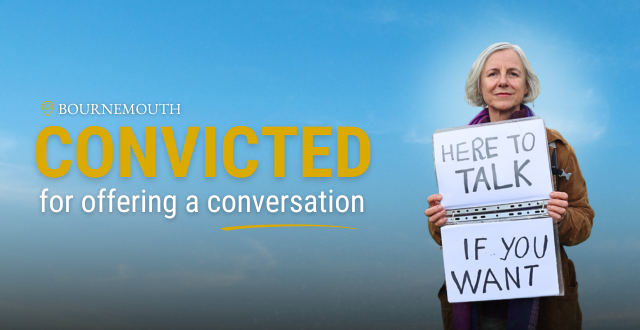
BOURNEMOUTH (4 April 2025) – A Christian woman was this morning convicted for offering consensual conversation in a censorial “buffer zone”.
Dr Livia Tossici-Bolt, 64, was found guilty at Poole Magistrates’ Court. Despite finding as a fact that “the sign made no reference to pregnancy, abortion, or religious matters” and hearing evidence from one council officer that “he did not witness her intimidating or harassing any individual”, District Judge Austin ruled that council officers had a reasonable belief that she was in violation of the PSPO.
One of the council officers testified that “he formed the view that [Tossici-Bolt] was in breach of [the PSPO] on several grounds. He considered her pro-life views, his own previous interaction with her, the complaint that had been received and the sign that she was holding.”
In mitigation, counsel for Dr Tossici-Bolt stressed that “The council has not adduced any evidence that she was observed by any service user or any other form of harm…neither is there an identified victim in this case.”
Following the conviction, the Judge sentenced Dr Tossici-Bolt to a conditional discharge and ordered her to pay prosecution costs of £20,000 which must be paid in full by 31 May 2025.
Earlier this week, a US State Department bureau said it was “monitoring” Dr Tossici-Bolt’s case, which is supported by ADF International, and that it was “concerned about freedom of expression in the United Kingdom”.
Reacting to the verdict, Dr Tossici-Bolt said:
“This is a dark day for Great Britain. I was not protesting and did not harass or obstruct anyone. All I did was offer consensual conversation in a public place, as is my basic right, and yet the court found me guilty. Freedom of expression is in a state of crisis in the UK. What has happened to this country? The US State Department was right to be concerned by this case as it has serious implications for the entire Western world."
- Livia Tossici-Bolt
“I remain committed to fighting for free speech, not only for my own sake but for all my fellow citizens. If we allow this precedent of censorship to stand, nobody’s right to freely express themselves is secure. With ADF International’s support, I will now consider all legal options,” she continued.
Legal Counsel for ADF International Lorcán Price commented:
“Everyone who cares about free speech should care about ‘buffer zones’. A Christian woman has been convicted merely for offering to chat on a public street in Britain. This ruling should show all reasonable people that, beyond the shadow of a doubt, abortion facility ‘buffer zones’ are incompatible with a free society.
“We will now support Livia in considering all legal options.”
Dr Tossici-Bolt was issued a fixed penalty notice for holding a sign that said “Here to talk, if you want” in a censorial abortion facility “buffer zone” in Bournemouth.
She was then prosecuted after she declined to pay it on the grounds that she did not breach the terms of the Public Spaces Protection Order—which bans acts of approval and disapproval regarding abortion—and had the right, protected under Article 10 of the Human Rights Act, to offer consensual conversations.
The District Judge who gave today’s verdict is the same judge who last October found Adam Smith-Connor guilty for silently praying in a “buffer zone”, in a case which US Vice President JD Vance directly highlighted in his Munich Security Conference speech
With ADF International’s support, Mr Smith-Connor will appeal his conviction in a July trial.
For more details on Dr Tossici-Bolt’s case, find her support page here.

